Shaping the Next Generation: Insights on Design Education from Savills Associates Blair Boyle & Nikos Papapetrou
Design Insider was delighted to sit down with Blair Boyle and Nikos Papapetrou, Associates at Savills Workplace & Design, to discuss the current state and future of design education.
Blair, known for his talent in designing workplaces that spark curiosity and joy, excels in 2D planning, 3D modelling, visualization, and FF&E specification. His work focuses on creating considered workplace experiences that utilize a space’s natural qualities, resulting in unique and bespoke projects. Nikos brings a strong design flair and passion to his projects, developing designs that are rooted in strong concepts tailored to client needs, brand identity, and business culture. His skills in 3D modelling, visualization, and detailed material specifications are aimed at improving people’s lives through beautiful spaces.
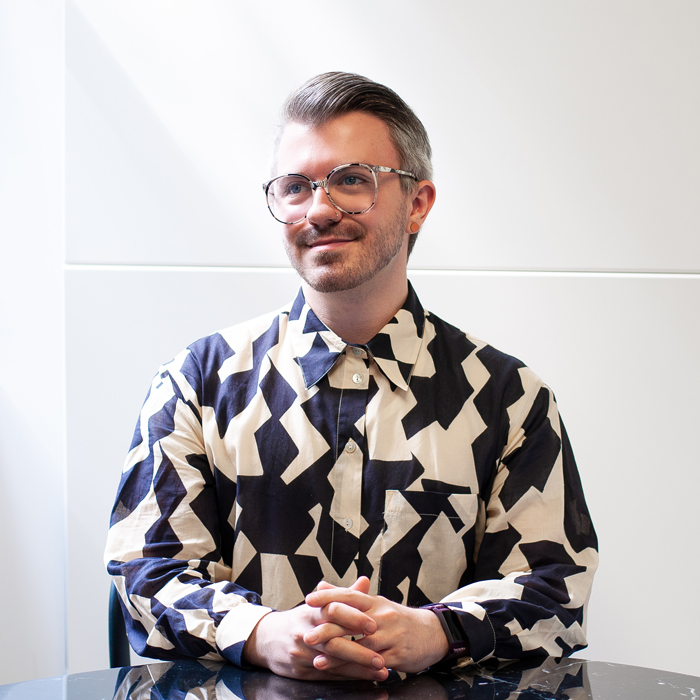
Blair Boyle, Associate at Savills Workplace & Design
The discussion delves into the evolving landscape of design education, the impact of declining interest in design subjects at the GCSE level, and the integration of AI in interior design. Blair and Nikos emphasize the need for practical, applied experience in education to complement theoretical learning. They also express concern over the significant drop in students pursuing design and technology, which could have long-term effects on the industry. Furthermore, they discuss the transformative potential of AI in enhancing design processes, highlighting its role as a collaborative tool that can increase efficiency and creativity in commercial interior design.
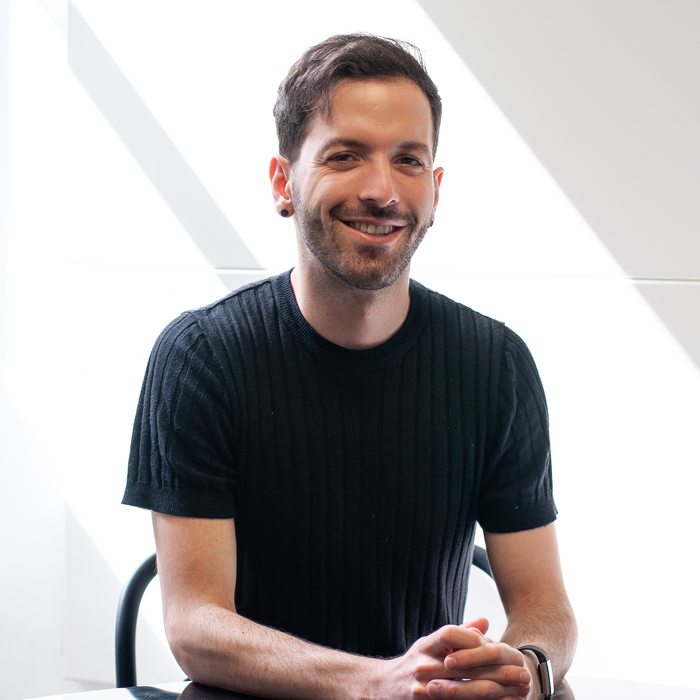
Nikos Papapetrou, Associate at Savills Workplace & Design
How would you describe the quality of your design education, and considering the cost of student fees, what do you believe design education needs to deliver now and, in the future, to ensure industry success for graduates in return for their investment?
Blair: I had an engaging education with lecturers who challenged us to think differently. I also had the privilege of being a Scottish student, so it was completely free. While I loved my education it was a lot more focused on learning than doing, while a strong foundation in the theoretical aspects of design is critical – practical and applied experience is second to none. One of my former colleagues did a degree apprenticeship in architecture which sounds like the best of both. I think more universities should be open to this model and should actively seek out opportunities in the world of work for their students to gain practical experience.
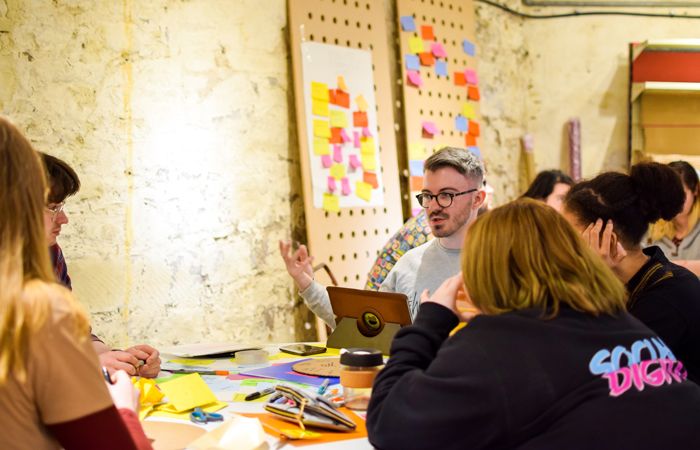
With a reported 57% decrease in the number of students taking Design and Technology and a 37% drop in Art and Design at GCSE level since 2010, what impact do you think this reduction will have or is already, on the industry?
Nikos: These are disappointing statistics, we need creatives and tech experts in our industry. This drop might not be immediately obvious and the impact of this will take years to emerge but creatives are the soul of our society, creating attractive buildings, interiors, cities and so on. Design touches every aspect of life and we need to encourage and support students with creative development.
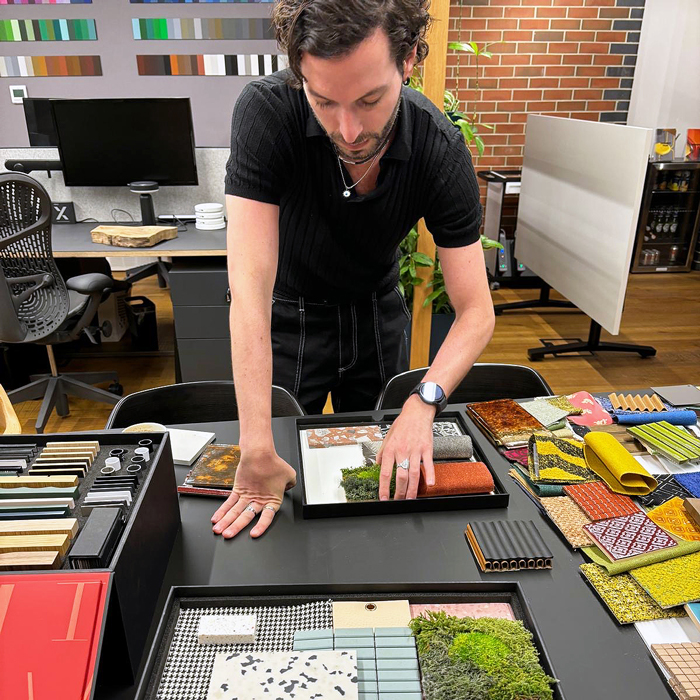
What was your experience like when entering and progressing within the commercial interior design sector, and how did your previous roles prepare you for your current position at Savills?
Blair: I got interviewed for an open position while in London exhibiting for New Designers and was fortunate enough to be successful. I had the unfortunate experience of starting my career 6 months before lockdown, so had a taste of London and the industry before being locked up for the best part of a year. In my previous role, we were a small team that took on a lot of individual responsibility and delivery objectives. My first year at Savills felt like a total reset of adjusting back to being in an office and collaborating. Recently, I went through a rigorous promotion process, without a doubt, my previous role and team members prepared me for this extensive process.
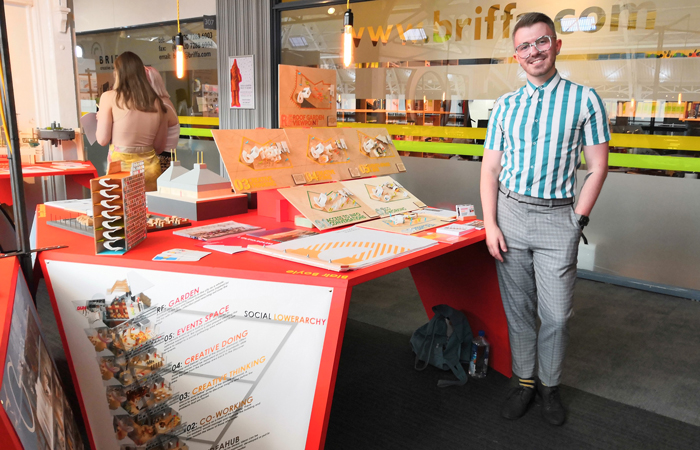
Can you share some of the significant hurdles or challenges you faced as you advanced in your career, and how you overcame them?
Nikos: Interior designers never stop learning, 8 years into my career and I’m still learning something new every day. This sometimes feels challenging, as if you should always know more! To overcome this, I try to leave work every day knowing that I have progressed in the areas I felt I needed to learn more and keep my skills up to today’s industry standards.
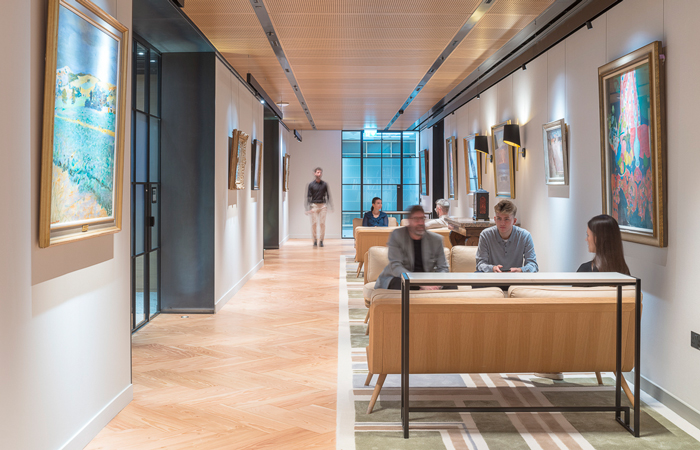
Where do you find the most joy in your work, and what aspects of your job are the most fulfilling for you?
Blair: We recently did a DISC analysis which revealed I have an influence-type personality meaning I’m quite people and socially oriented. I love working collaboratively with other people to create exciting new ideas or solve a complex problem. In terms of fulfilment – when we design offices, we are creating a design that impacts people’s lives and daily routines. Creating a space that genuinely improves, optimises or helps someone to have a better day is a big part of the fun for me.
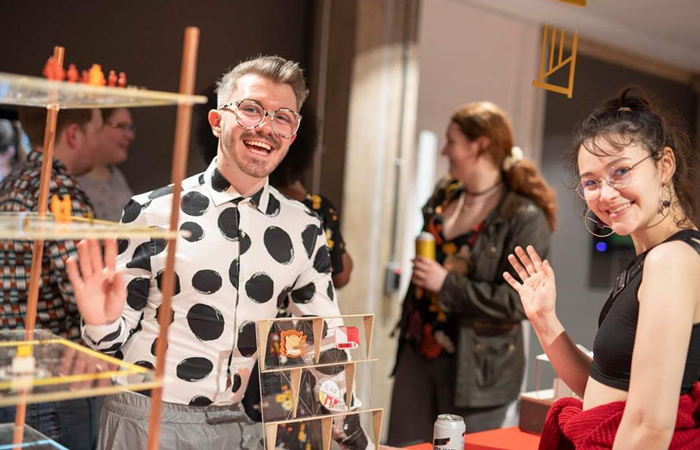
How do you build and maintain relationships with the suppliers you work with, and how has this process changed over recent years?
Nikos: For me, it’s very hard to keep and maintain good relationships with all the suppliers, weeks can become very busy – how is it already July?! One thing I love about being an interior designer is that suppliers are very good at keeping in touch, which makes my day-to-day a lot easier. This helps to maintain relationships and to keep the connections strong for successful projects and easier communications.
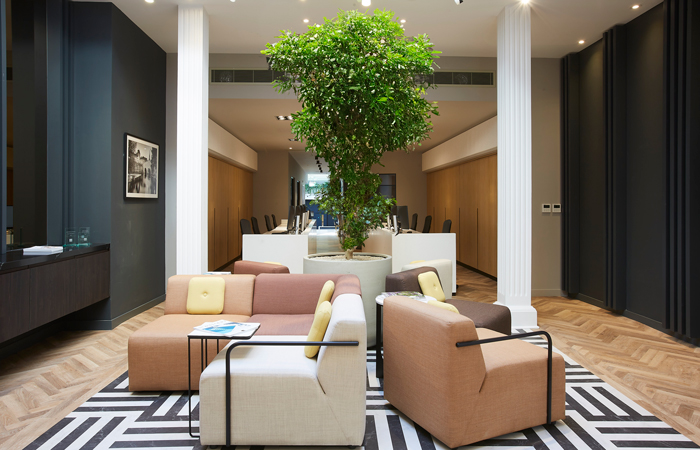
What are you looking for in the next generation of products you wish to specify for your projects, and how do these products meet the evolving needs of your clients?
Blair: There are so many inspiring things happening working towards making spaces more engaging, inclusive and sustainable. For me, products that are engaging, sustainably sourced and work for everyone are top of my specification list. Manufacturers have been doing a great deal working towards sustainability in the circular economy, a good example being design for disassembly. I think interior designers should be taking note.

As the next generation of designers and associate designers, what do you believe is most important to have a platform to discuss within the industry, and why?
Nikos: Sustainability is a subject that everyone is talking about, and for all the right reasons. However, sustainability is not just about environmental issues, but also about society, people and mental health. The average life for a commercial building in the UK is around 40 years and therefore most buildings are starting to look the same, with a lack of identity that reflects their location, climate, culture etc. We not only need to be thinking about how we design but also what, who, and where we design. Let’s make buildings sustainable AND timeless.
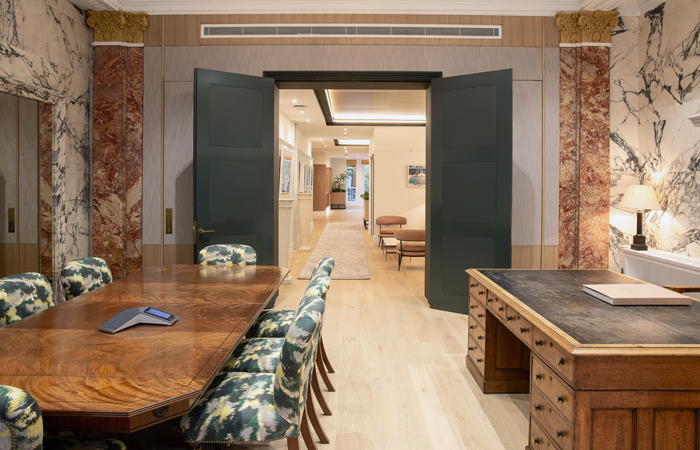
With the increasing integration of AI in various fields, what role do you foresee AI playing in the future of interior design, particularly in commercial spaces?
Blair: I’ve been an early adopter of AI in our team and within the wider Savills network, integrating Midjourney into our concept development process and it’s a game changer. Time is everything. I think AI is an opportunity to enhance what you do and increase your efficiency. How I envision myself and others using AI responsibly is by having an initial creative input, inputting that to an AI program or add-in, letting AI iterate or expand, reviewing the output and iterating further as needed – AI as a collaborator.
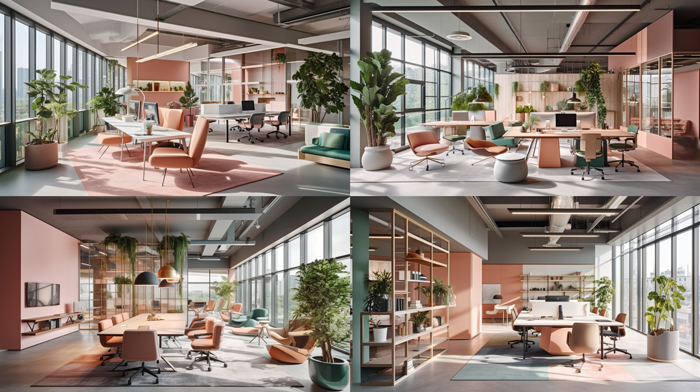
What advice would you give to this year’s design graduates who are about to enter the field, based on your own experiences and the current trends in the industry?
Nikos: At the beginning of your career, experience is not expected, but knowing the right tools and processes will help significantly. Focus on learning today’s industry-standard software, be able to draw plans and elevations, and create 3D models and renders confidently. The rest will come with experience.




